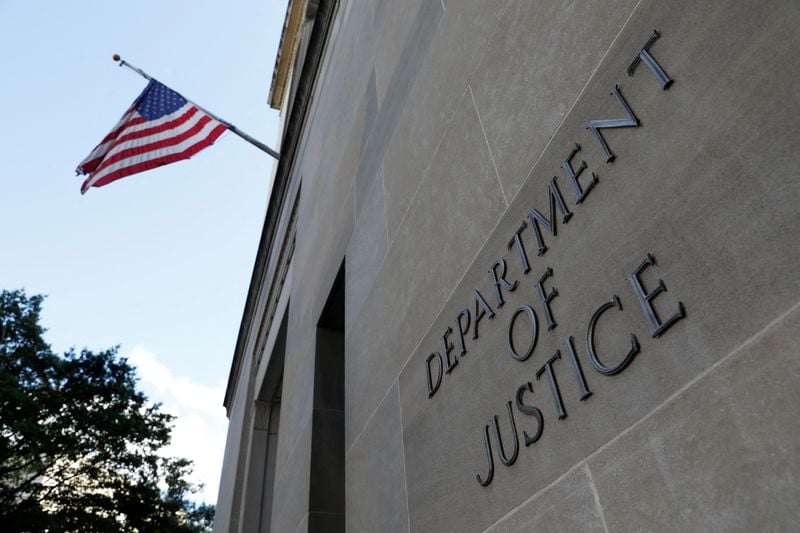PITTSBURGH, Pa. – A resident of Fort Lauderdale, Florida, was charged in federal court with one count of conspiracy related to the submission of fraudulent Medicare claims, United States Attorney Cindy K. Chung announced today.
Daniel Hurt, 58, was charged by criminal Information with a conspiracy to commit health care fraud, pay and receive unlawful kickbacks, and engage in money laundering.
Beginning in late 2018 and continuing through approximately October 2019, the Information alleges that Hurt participated in a conspiracy related to Medicare billing for cancer genomic (CGx) testing. CGx testing used DNA sequencing to detect mutations in genes that could indicate a higher risk of developing certain types of cancers in the future. CGx testing, however, was not a method of diagnosing whether an individual presently had cancer. As alleged, Hurt and his co-conspirators, including individuals associated with so-called marketing entities, acquired thousands of testing samples from Medicare beneficiaries located throughout the United States. Marketers used targeted campaigns to induce beneficiaries to submit CGx specimens by means of cheek swabs sent to their homes or provided to them at purported “health fairs” held throughout the United States.
According to the Information, Hurt caused CGx specimens to be sent to Ellwood City Medical Center (ECMC), a hospital located in Ellwood City, Pennsylvania. As alleged, Hurt used ECMC as the billing entity for Medicare purposes despite the fact that the facility did not possess properly validated equipment to conduct any CGx testing on-site and, as such, ECMC staff were required, at Hurt’s direction, to repackage the samples and send them to third-party reference laboratories that were capable of completing the testing. In or to justify Medicare reimbursement for the CGx testing, Hurt and his co-conspirators obtained CGx prescriptions from telemedicine physicians without regard to the fact that the doctors did not conduct proper telemedicine visits, were not treating the Medicare beneficiaries for cancer or symptoms of cancer, did not use the test results in the treatment of the beneficiaries, and generally were not qualified to understand and interpret the test results.
According to the Information, Hurt caused ECMC to submit Medicare claims for CGx testing that regularly exceeded $12,000 per beneficiary. In total, between approximately January 2019 and October 2019, Medicare allegedly reimbursed ECMC more than $25 million for CGx testing. During this time, the Information further alleges that Hurt directed ECMC staff to transfer millions of dollars from ECMC-related accounts to bank accounts that Hurt controlled. In turn, Hurt allegedly used funds he obtained from ECMC to pay millions of dollars in kickbacks to the marketers, among others, in exchange for their efforts to obtain CGx samples. To disguise such kickbacks, the Information alleges that Hurt entered into sham contracts with the marketers to make it appear that they were engaged in, and being paid for, legitimate marketing and ]referral services. Likewise, Hurt, acting through entities he controlled, allegedly entered into similar agreements and business arrangements with ECMC that disguised the payments he obtained from the facility as purportedly legitimate payments, including payments related to management services at ECMC’s laboratory. As alleged, the payments, in fact, were based on the volume of CGx tests and the amount of resulting Medicare reimbursements.
According to the Information, Hurt and others used a portion of Medicare reimbursements obtained through the fraudulent submission of CGx claims to engage in monetary transactions in excess of $10,000, including approximately $3 million in payments toward the purchase of a luxury watercraft in Florida.
Hurt faces a maximum sentence of five years in prison and a fine of not more than the greater of $250,000 or an alternative fine in an amount not more than the greater of twice the gross pecuniary gain to any person or twice the pecuniary loss to any person other than the defendant. Under the Federal Sentencing Guidelines, the actual sentence imposed would be based upon the seriousness of the offense and the prior criminal history, if any, of the defendant.
Assistant United States Attorney Eric G. Olshan is prosecuting this case on behalf of the government. The Federal Bureau of Investigation, U.S. Department of Health and Human Services – Office of Inspector General, and Internal Revenue Service – Criminal Investigation conducted the investigation of the defendant.
An Information is an accusation. A defendant is presumed innocent unless and until proven guilty.
